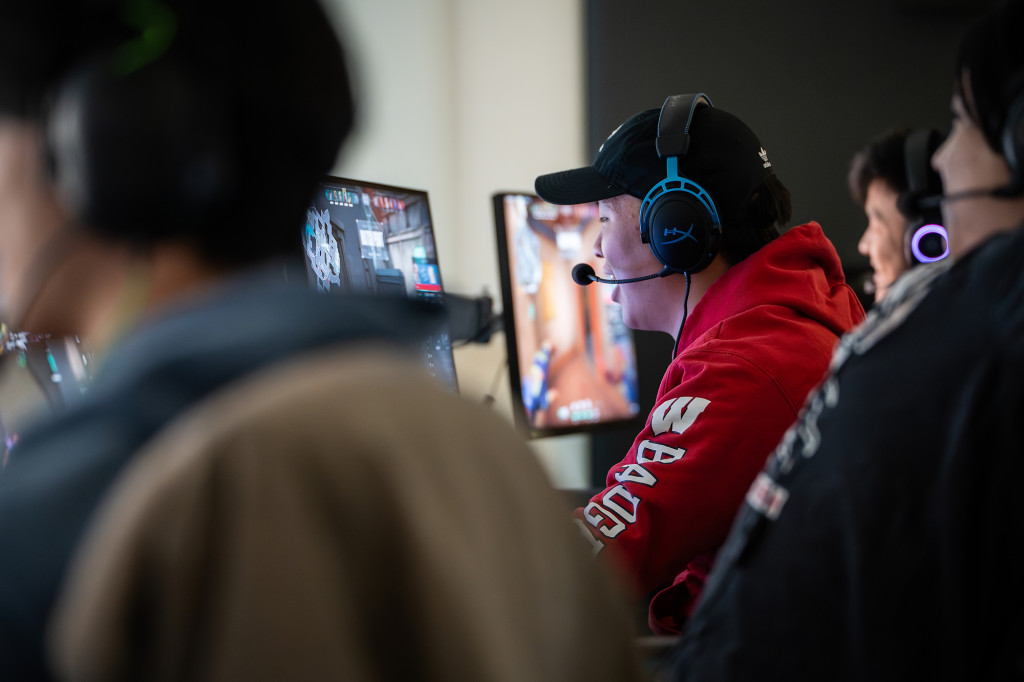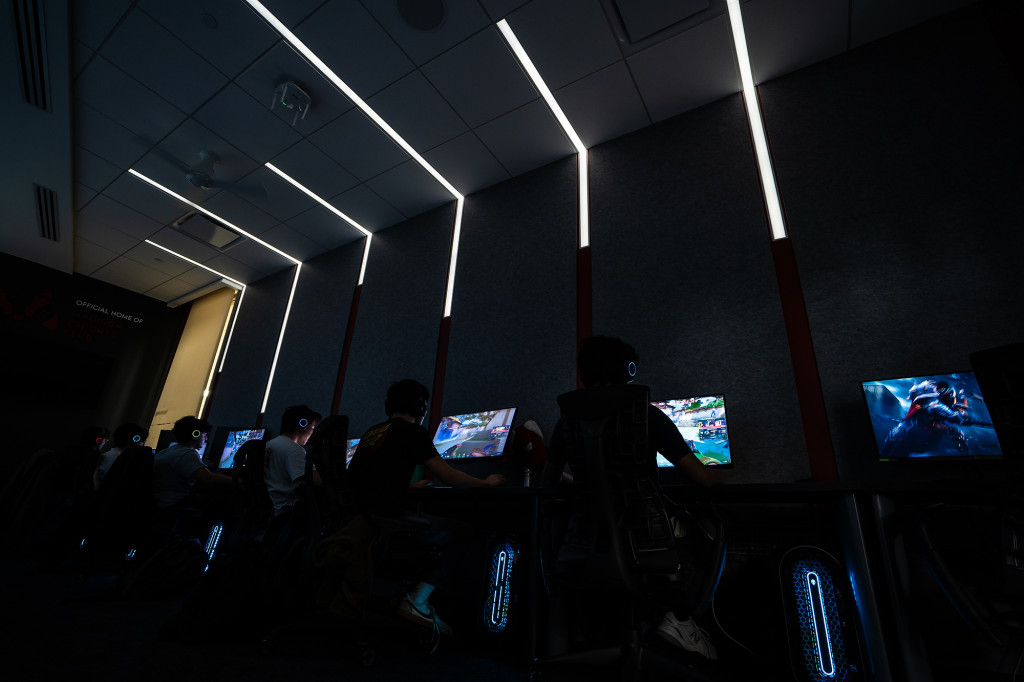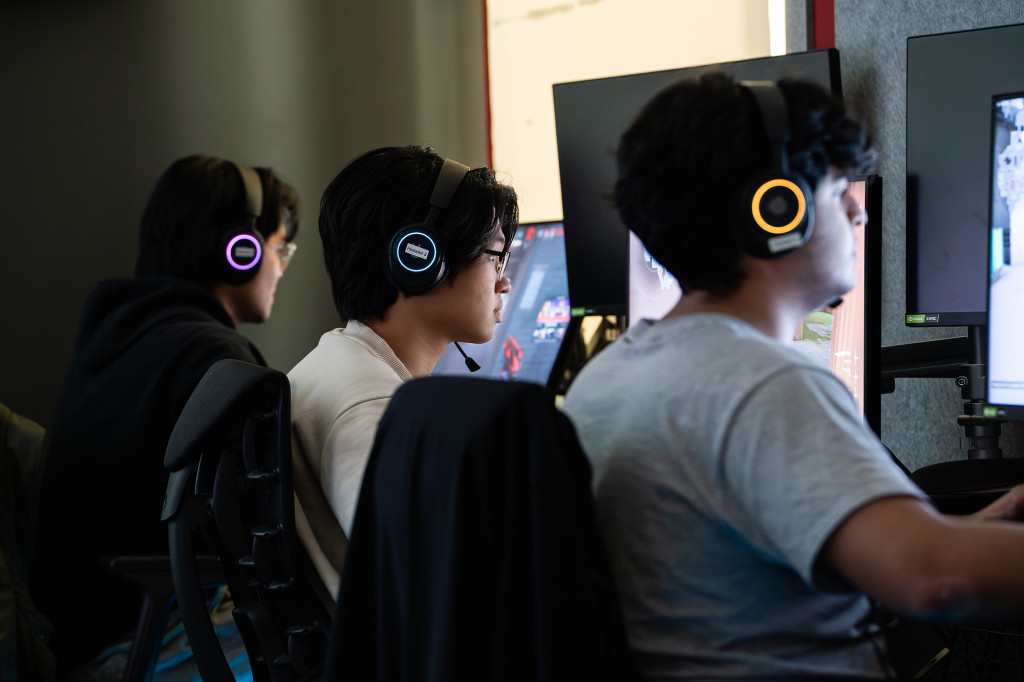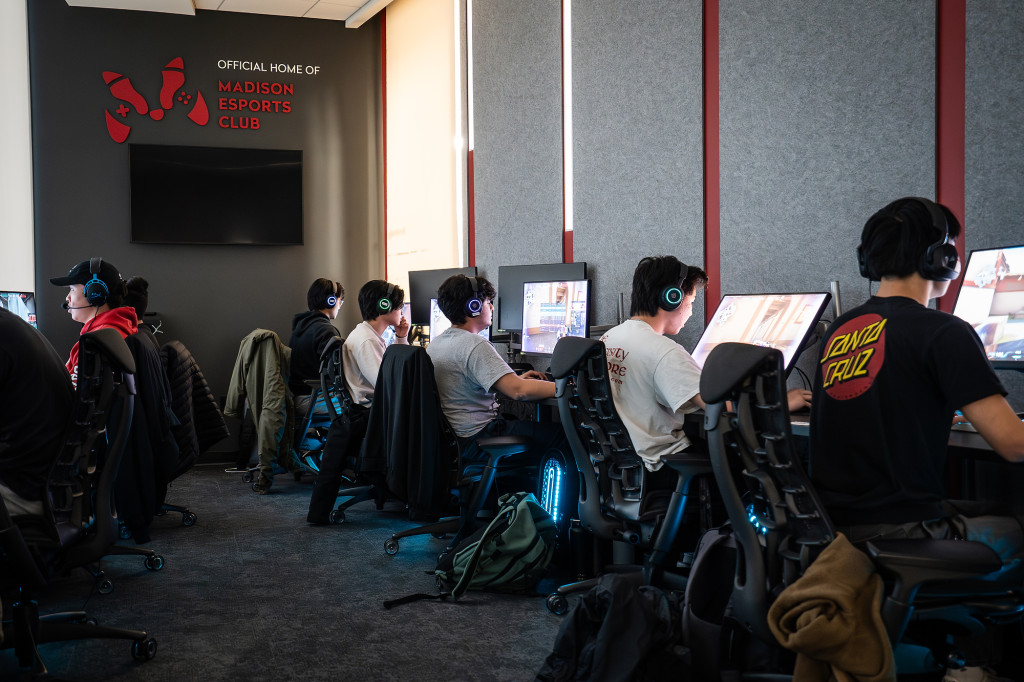The growth of esports at UW–Madison
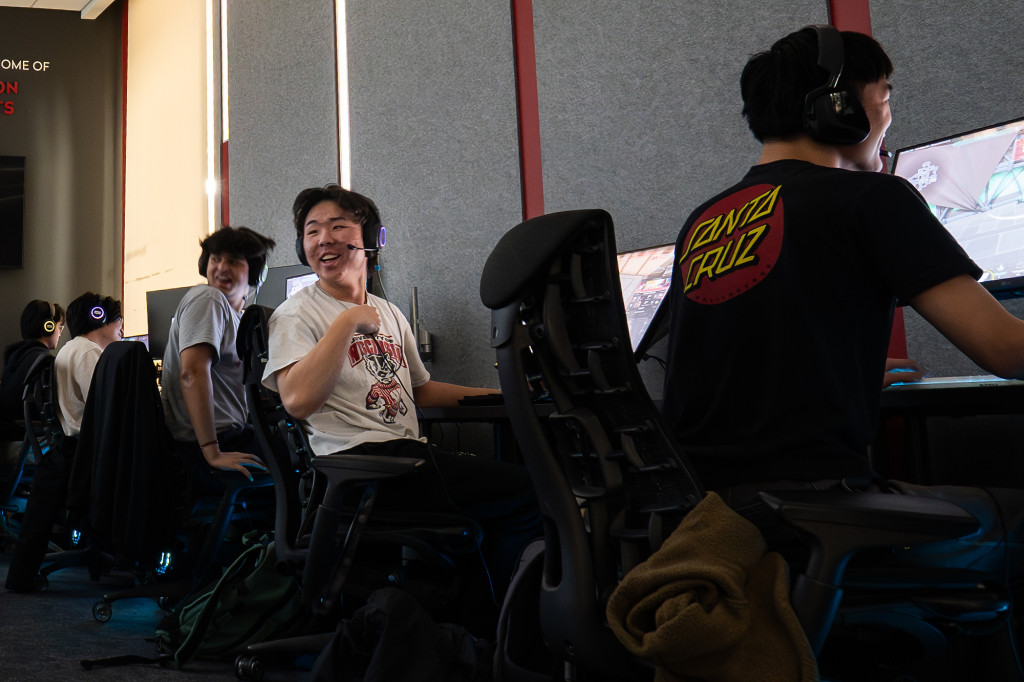
Students compete in Valorant, a multiplayer video game, in the Esport Lounge at the Bakke Recreation & Wellbeing Center, Photo by Xiaomeng Shen/UW–Madison
While esports isn’t usually the first thing that comes to mind when you think of athletics, there are a lot of skills that you need to be a good esports athlete.
“There is a big mental aspect of esports, but part of it is just mechanical skills, like how well you aim and stuff,” says UW sophomore Arsalan Ahmad, an officer for the Madison eSports Club. “Genetics plays a huge role in other sports, a lot of times it’s just ‘oh are you tall enough to play basketball.’ With esports there is a lot of adaptation, it’s not only that you have to grind, but you also have to adapt to changing metas (most effective tactics available) like traditional sports.”
Ahmad, who’s studying computer science and data science, competes on the club’s top team for Valorant.
Esports, or playing video games competitively, has grown rapidly into a global industry. Games like League of Legends, Valorant, Apex Legends and Counter-Strike have become some of the most popular, with their top athletes being treated like celebrities, complete with dedicated training facilities and top tier sponsorship deals.
UW–Madison has also started providing more opportunities and spaces for esports on campus. While UW doesn’t have a varsity-level esports team like some universities, student-led groups such as the Madison Esports Club offer competition across multiple games.
The Madison Esports Club first started off as a group of students who gathered to play popular games such as DOTA, Starcraft and Hearthstone. In early 2020 the organization was adopted under the University Recreation and Wellbeing as a Sports Club, bringing it more funding and opportunities to compete against other teams.
The organization hosts teams for specific games, such as League of Legends, Valorant and Call of Duty. But students in the club don’t have to compete on a team — they can just find groups of other students to play games for fun.
“Since COVID, gaming and video games has become one of the largest entertainment industries in the world,” said club president Eddie Kustner. “It’s good to have more opportunities for people who enjoy video games to go out and meet other people who enjoy video games.”
The Madison Esports Club competes in a variety of collegiate competitions locally and on a more national scale, including the Big Ten league and the Wisconsin Esports Conference, which includes other colleges in Wisconsin. The Big Ten is offering competitions in Super Smash Bros and Overwatch for the Spring 2025 semester, and the Madison Esports team is competing in both.
Outside of the team itself, the Bakke Recreation and Wellbeing Center has opened up a dedicated Esports lounge fitted with computers optimized for gaming. Esports has also been offered as a part of intramural sports, with semester-long competitions and shorter tournaments.
“Fostering local competition is really good. Also just connecting with other students on campus,” says Arsalan Ahmad. “It’s a great way to socialize with other students, just like it is with other intramural sports.”
Kustner would like to see esports grow here. “We have an esports room and it’s great that we have that, that’s a great first step,” he says.
It can be difficult to convince up-and-coming esports athletes to compete on a collegiate level because the prime age for gaming is on the younger side. Most talented players make their professional debut before they even graduate from high school.
“The long-term goals are to support the team and to provide more opportunities for the community to grow. The most successful esports communities in college have a very strong social scene and they have physical areas where people want to come, which fosters community” Kustner says.

